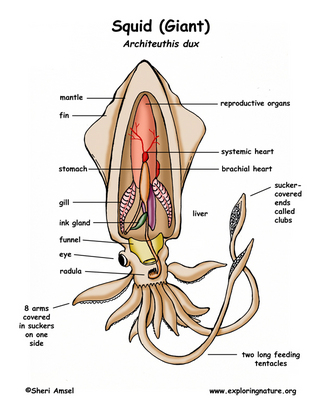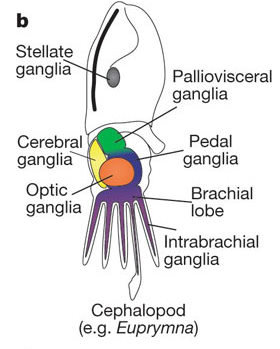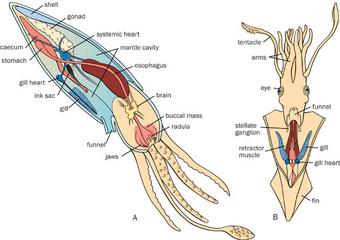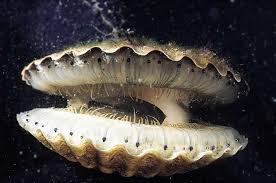16. November 2022 No Comment
At the ocean surface the octopus traps air within its papery shell and then propels itself underwater. Squid use their suckers primarily for grabbing food. A cephalopod gets around by using several different methods. While most squids tend to live solitary lives, others congregate in schools of millions. However, the giant cuttlefish (Sepia apama) experienced a significant decline in numbers during the 1990s.
This becomes highly advantageous when conserving oxygen is important. Cephalopods are famous for their eyes. For example, on the Pacific coast of California, Native Americans consumed large quantities of abalone and especially owl limpets. The radula is generally used for feeding. Other bivalves have used the byssus to attach securely within crevices and thus to assume a laterally flattened, circular shape. Bivalves are organisms like clams, mussles and oysters. Humans have three different types of cones: one that detects red wavelengths of light, one that detects blue, and one that detects green. In addition, bivalves bore into soft shales and compacted muds but may be important also in the bioerosion of corals. Based on our current understanding of relationships, the earliest molluscs grazed on encrusting animals and detritus. The projections splitting each chamber are the siphuncle tubes that allow gas and liquid to be transferred from chamber to chamber.  In combination, these cones allow us to see a wide breadth of color hues. The shells are sometimes molded into balls and marketed as Osmea pearl (a reference to the Philippine Osmea dynasty) and are popular materials for earrings, bracelets and necklaces. The two branchial hearts push oxygen-depleted blood through the gills while the systemic heart pumps the oxygenated blood throughout the body. The earliest ancestors of todays cephalopods appear in the fossil record around 530 mya, at a time of intense animal diversification during the Early Cambrian. The best example of this is the windowpane shell Placuna. A veined octopus sits inside a vacant bivalve shell, which it uses as a portable shelter, in the Philippines. However, in one experiment, the species Octopus maya quickly learned whether to take a right or left in a simple T maze to escape the dry maze and find their rewardthe reprieve of a seawater tank. Only the chambered nautiluses have an external shell. Many squids are voracious predators. organisms.
In combination, these cones allow us to see a wide breadth of color hues. The shells are sometimes molded into balls and marketed as Osmea pearl (a reference to the Philippine Osmea dynasty) and are popular materials for earrings, bracelets and necklaces. The two branchial hearts push oxygen-depleted blood through the gills while the systemic heart pumps the oxygenated blood throughout the body. The earliest ancestors of todays cephalopods appear in the fossil record around 530 mya, at a time of intense animal diversification during the Early Cambrian. The best example of this is the windowpane shell Placuna. A veined octopus sits inside a vacant bivalve shell, which it uses as a portable shelter, in the Philippines. However, in one experiment, the species Octopus maya quickly learned whether to take a right or left in a simple T maze to escape the dry maze and find their rewardthe reprieve of a seawater tank. Only the chambered nautiluses have an external shell. Many squids are voracious predators. organisms.  Others, such as cockles and clams on soft shores and mussels and oysters on rocky coasts, can occur in densities high enough that they dominate entire habitats and assume important roles in nutrient cycles. To be expected within a class comprising more than 15,000 living species, abundance varies considerably. Their exact diet varies between species, but usually consists of fish, crustaceans, other mollusks and worms. They occur at abyssal and hadal depths, either burrowing or surface-dwelling, and are important elements of the midoceanic rift fauna. Local divers recall how in an area that once saw thousands of the cuttlefish, people are now thrilled to see a couple hundred. Most chaetodermomorph aplacophorans, monoplacophorans and scaphopods feed on protists and/or bacteria while neomeniomorph aplacophorans graze on cnidarians. In terrestrial communities, gastropods can achieve reasonably high diversity and abundance: as many as 60-70 species may coexist in a single habitat and abundance in leaf litter can exceed more than 500 individuals in four liters of litter. Without reward or punishment, the second group chose the red ball more quickly than the initial group. Fossilized cephalopod shells were quite a mystery to people during ancient times, and are the source of several fantastical tales. Characteristics The concentration of photophores on the bottom side of some squid suggests the light is used as a camouflage technique called counterillumination; the bright light protects the squid from lurking predators below by allowing it to blend in with light coming from the surface of the water. WebCephalopods have a relatively complex brain and eyes with good, color vision. The most obvious difference between most cephalopods and other mollusks is the apparent lack of a shell. and A.M. prepared and sequenced cDNA. The shells of some molluscs are considered quite beautiful and valuable. Light is created through a chemical reaction that produces light energy in the body of the animal, similar to how fireflies flash on a hot summer night. There are many more species of fossil cephalopods (17,000) than living ones (about 800) and some of the most important groups in the past have no living descendants.While todays cephalopods are most notable for their many arms and soft bodies, ancient cephalopods are mostly known from their shells because they are well preserved as fossils. Services. They are thought to be intelligent and can learn from experience. 350 BC). Starting in January 2017, the international trade of nautilus shells had to be accompanied by a CITES permit. WebThe cephalopods appear to be very different from other mollusks, but physiologically they are similar. The nautilus has a specialized system for movement and buoyancy that takes advantage of the compressible nature of gas. Choosing a red ball elicited a tasty snack while choosing a white ball elicited an unpleasant shock. WebCephalopods have a relatively complex brain and eyes with good, color vision. The morphology and anatomy of modern bivalves have been much altered from those of ancestral mollusks, which had a distinct anterior end with a mouth and a posterior end with an anus (Figure 1). Inspired by the strength and suction mechanismof octopus suckers, scientists are using them as models formedical adhesivesand attachment in robots. Websimilarities between cephalopods and bivalves. They display vivid coloration, typically seen in squids and octopuses which is used for camouflage. Some were as small as a thumbnail while the largest measured over eight feet (2.5 meters) in diameter, taller than the average, grown man. Hemocyanin is most efficient in cold water but loses its hold on oxygen in more acidic water suggesting that as oceans become warmer and more acidic due to climate change, cephalopods may struggle to circulate enough oxygen through their bloodstream. In the paper nautilus, the hectocotylus detaches completely during sex and remains inside the femalethis is what Cuvier mistook as a worm. Aristotle XII: Parts of Animals Movement of Animals, Progression of Animals(1937). Who makes the plaid blue coat Jesse stone wears in Sea Change? When observed in 2014 during NOAA's Okeanos Explorer's Gulf of Mexico expedition, this dumbo had a never before seen coiled leg body posture.
Others, such as cockles and clams on soft shores and mussels and oysters on rocky coasts, can occur in densities high enough that they dominate entire habitats and assume important roles in nutrient cycles. To be expected within a class comprising more than 15,000 living species, abundance varies considerably. Their exact diet varies between species, but usually consists of fish, crustaceans, other mollusks and worms. They occur at abyssal and hadal depths, either burrowing or surface-dwelling, and are important elements of the midoceanic rift fauna. Local divers recall how in an area that once saw thousands of the cuttlefish, people are now thrilled to see a couple hundred. Most chaetodermomorph aplacophorans, monoplacophorans and scaphopods feed on protists and/or bacteria while neomeniomorph aplacophorans graze on cnidarians. In terrestrial communities, gastropods can achieve reasonably high diversity and abundance: as many as 60-70 species may coexist in a single habitat and abundance in leaf litter can exceed more than 500 individuals in four liters of litter. Without reward or punishment, the second group chose the red ball more quickly than the initial group. Fossilized cephalopod shells were quite a mystery to people during ancient times, and are the source of several fantastical tales. Characteristics The concentration of photophores on the bottom side of some squid suggests the light is used as a camouflage technique called counterillumination; the bright light protects the squid from lurking predators below by allowing it to blend in with light coming from the surface of the water. WebCephalopods have a relatively complex brain and eyes with good, color vision. The most obvious difference between most cephalopods and other mollusks is the apparent lack of a shell. and A.M. prepared and sequenced cDNA. The shells of some molluscs are considered quite beautiful and valuable. Light is created through a chemical reaction that produces light energy in the body of the animal, similar to how fireflies flash on a hot summer night. There are many more species of fossil cephalopods (17,000) than living ones (about 800) and some of the most important groups in the past have no living descendants.While todays cephalopods are most notable for their many arms and soft bodies, ancient cephalopods are mostly known from their shells because they are well preserved as fossils. Services. They are thought to be intelligent and can learn from experience. 350 BC). Starting in January 2017, the international trade of nautilus shells had to be accompanied by a CITES permit. WebThe cephalopods appear to be very different from other mollusks, but physiologically they are similar. The nautilus has a specialized system for movement and buoyancy that takes advantage of the compressible nature of gas. Choosing a red ball elicited a tasty snack while choosing a white ball elicited an unpleasant shock. WebCephalopods have a relatively complex brain and eyes with good, color vision. The morphology and anatomy of modern bivalves have been much altered from those of ancestral mollusks, which had a distinct anterior end with a mouth and a posterior end with an anus (Figure 1). Inspired by the strength and suction mechanismof octopus suckers, scientists are using them as models formedical adhesivesand attachment in robots. Websimilarities between cephalopods and bivalves. They display vivid coloration, typically seen in squids and octopuses which is used for camouflage. Some were as small as a thumbnail while the largest measured over eight feet (2.5 meters) in diameter, taller than the average, grown man. Hemocyanin is most efficient in cold water but loses its hold on oxygen in more acidic water suggesting that as oceans become warmer and more acidic due to climate change, cephalopods may struggle to circulate enough oxygen through their bloodstream. In the paper nautilus, the hectocotylus detaches completely during sex and remains inside the femalethis is what Cuvier mistook as a worm. Aristotle XII: Parts of Animals Movement of Animals, Progression of Animals(1937). Who makes the plaid blue coat Jesse stone wears in Sea Change? When observed in 2014 during NOAA's Okeanos Explorer's Gulf of Mexico expedition, this dumbo had a never before seen coiled leg body posture.  In 1952, during the playoffs, two Red Wings fans threw an octopus onto the ice. The increased harvest of nautilus for their shells has caused concern among scientists. Websites:Tree of Life- Basic overview of cephalopodsUniversity of California Museum of Paleontology- The CephalopodaThe British Geological Society- Information about extinct cephalopodsThe University of Michigan Museum of Zoology- Animal Diversity Web with background information on Cephalopoda, News Articles:Curiouser and Curiouser--Octopus's Evolution Is Even Stranger Than Thought- Scientific AmericanLoving the Chambered Nautilus to Death- The New York TimesA Dolphin's Recipe for Octopus -The New York TimesPolarized Display Sheds Light on Octopus and Cuttlefish Vision-and Camouflage- Scientific AmericanOctlantis is a Just-Discovered Underwater City Engineered by Octopuses- QuartzThe Cuttlefish, a Master of Camouflage, Reveals a New Trick- The New York Times, Books:
In 1952, during the playoffs, two Red Wings fans threw an octopus onto the ice. The increased harvest of nautilus for their shells has caused concern among scientists. Websites:Tree of Life- Basic overview of cephalopodsUniversity of California Museum of Paleontology- The CephalopodaThe British Geological Society- Information about extinct cephalopodsThe University of Michigan Museum of Zoology- Animal Diversity Web with background information on Cephalopoda, News Articles:Curiouser and Curiouser--Octopus's Evolution Is Even Stranger Than Thought- Scientific AmericanLoving the Chambered Nautilus to Death- The New York TimesA Dolphin's Recipe for Octopus -The New York TimesPolarized Display Sheds Light on Octopus and Cuttlefish Vision-and Camouflage- Scientific AmericanOctlantis is a Just-Discovered Underwater City Engineered by Octopuses- QuartzThe Cuttlefish, a Master of Camouflage, Reveals a New Trick- The New York Times, Books:  They also have a very long and rich fossil record going back more than 550 million years, making them one of the most common types of organism used by paleontologists to study the history of life. In combination, these color and texturechanging techniques allow a cephalopod to mimic almost any background. A difference between bivalves and cephalopods are bivalve animals use a radula to feed, and cephalopods use filter-like structures to feed, that is the third option, There are also estuarine bivalves, and two important families, the Unionidae and Corbiculidae, are predominantly freshwater with complicated reproductive cycles. Diet: They are predators, using their arms (or tentacles) to trap prey, and a sharp beak to bite prey. The color transformations are made possible by thousands of pigment-filled cells that dot the entire body, called chromatophores. BRACHIOPODS - smaller (generally less than 10cm) BIVALVES - bivalve shells can grow very large (clams over 1m) BRACHIOPODS - may be attached to the They then stuff prey into a central mouth. CAN SOMEONE PLZZZZ ANWER THIS I WILL GIVE U 15 The sucker rings of squids are composed of "suckerin" proteins that are similar in strength and structure to the protein found in spiders silk. Cuttlefish meat is also a popular dish and although it is still unclear what is the exact cause of the population decline, exploitation of the easy to find cuttlefish is potentially a contributor. In most surface-burrowing species (the hypothetical ancestral habit) the shells are small, spherical or oval, with equal left and right valves. similarities between cephalopods and In Rome, they would stuff the cavity within the body full of spices, cut off the arms, and bake it in a pie. Cephalopods are a class of shell-bearing animals as well as mollusks with a reduced shell. By the Ordovician, a period that began roughly 500 mya, a great diversity of cephalopod shells emerged. Systematics Cuttlefish - More than 90 species of cuttlefish live in tropical and temperate waters off of Europe, Asia, Africa and Australia. Though structured similarly to other mollusks, a cephalopod nervous system far surpasses the nervous systems of their closest molluscan relativesthe California sea slug has about 18,000 neurons while the common octopus, Octopus vulgaris, has roughly 200 million neurons in its brain. Early cephalopods probably diverged from the monoplacophorans, a group of bottom-dwelling molluscs with tall, slightly curved, conical shells. Sperm whales that wash ashore can even have large sucker scars along their body, indicating the whales engage in epic battles with giant squid while eating them. nianthony martinez miami florida. The relevance of cephalopods for fisheries and even aquaculture, is raising concerns on the relationship between these molluscs and environmental stressors, from climate change to pollution. Some use this skill to blend into their environment as masters of disguise, while others purposefully stand out with a flashy display.
They also have a very long and rich fossil record going back more than 550 million years, making them one of the most common types of organism used by paleontologists to study the history of life. In combination, these color and texturechanging techniques allow a cephalopod to mimic almost any background. A difference between bivalves and cephalopods are bivalve animals use a radula to feed, and cephalopods use filter-like structures to feed, that is the third option, There are also estuarine bivalves, and two important families, the Unionidae and Corbiculidae, are predominantly freshwater with complicated reproductive cycles. Diet: They are predators, using their arms (or tentacles) to trap prey, and a sharp beak to bite prey. The color transformations are made possible by thousands of pigment-filled cells that dot the entire body, called chromatophores. BRACHIOPODS - smaller (generally less than 10cm) BIVALVES - bivalve shells can grow very large (clams over 1m) BRACHIOPODS - may be attached to the They then stuff prey into a central mouth. CAN SOMEONE PLZZZZ ANWER THIS I WILL GIVE U 15 The sucker rings of squids are composed of "suckerin" proteins that are similar in strength and structure to the protein found in spiders silk. Cuttlefish meat is also a popular dish and although it is still unclear what is the exact cause of the population decline, exploitation of the easy to find cuttlefish is potentially a contributor. In most surface-burrowing species (the hypothetical ancestral habit) the shells are small, spherical or oval, with equal left and right valves. similarities between cephalopods and In Rome, they would stuff the cavity within the body full of spices, cut off the arms, and bake it in a pie. Cephalopods are a class of shell-bearing animals as well as mollusks with a reduced shell. By the Ordovician, a period that began roughly 500 mya, a great diversity of cephalopod shells emerged. Systematics Cuttlefish - More than 90 species of cuttlefish live in tropical and temperate waters off of Europe, Asia, Africa and Australia. Though structured similarly to other mollusks, a cephalopod nervous system far surpasses the nervous systems of their closest molluscan relativesthe California sea slug has about 18,000 neurons while the common octopus, Octopus vulgaris, has roughly 200 million neurons in its brain. Early cephalopods probably diverged from the monoplacophorans, a group of bottom-dwelling molluscs with tall, slightly curved, conical shells. Sperm whales that wash ashore can even have large sucker scars along their body, indicating the whales engage in epic battles with giant squid while eating them. nianthony martinez miami florida. The relevance of cephalopods for fisheries and even aquaculture, is raising concerns on the relationship between these molluscs and environmental stressors, from climate change to pollution. Some use this skill to blend into their environment as masters of disguise, while others purposefully stand out with a flashy display.  Upon consuming all eight arms by himself, the man fell ill and required the attention of a doctor. The Mollusca The Nautiloids are one of the oldest groups of cephalopods, emerging at the end of the Cambrian roughly 500 mya. Today, characters like Dr. Octavius in Spiderman and Ursula in The Little Mermaid follow the evil monster tradition. Visit the mollusca pages on the Tree of Life for more on molluscan systematics. There are many The Belemnites Get a Britannica Premium subscription and gain access to exclusive content. Functionally, however, it is possible to find similarities between cephalopod brains and vertebrate brains, even if it is difficult to do so anatomically. In the nautiloids it is found directly down the middle of the chambers while in the ammonoids it hugs the outer shell wall. With a lineage that extends to around 530 mya, it should be no surprise that the cephalopod family tree is pretty complicated. Squid The squids are divided into quite a few groups, with over 300 species worldwide. A 2005 study found that the coconut octopus and the algae octopus tiptoe backward on two arms, a method that allows them to maintain their cryptic camouflage while crawling. Scientists once believed cuttlefish were a completely separatelineage from other ten-armed cephalopods, however, recent genetic studies show that cuttlefish are evolutionarilyamong the groups of squid.
Upon consuming all eight arms by himself, the man fell ill and required the attention of a doctor. The Mollusca The Nautiloids are one of the oldest groups of cephalopods, emerging at the end of the Cambrian roughly 500 mya. Today, characters like Dr. Octavius in Spiderman and Ursula in The Little Mermaid follow the evil monster tradition. Visit the mollusca pages on the Tree of Life for more on molluscan systematics. There are many The Belemnites Get a Britannica Premium subscription and gain access to exclusive content. Functionally, however, it is possible to find similarities between cephalopod brains and vertebrate brains, even if it is difficult to do so anatomically. In the nautiloids it is found directly down the middle of the chambers while in the ammonoids it hugs the outer shell wall. With a lineage that extends to around 530 mya, it should be no surprise that the cephalopod family tree is pretty complicated. Squid The squids are divided into quite a few groups, with over 300 species worldwide. A 2005 study found that the coconut octopus and the algae octopus tiptoe backward on two arms, a method that allows them to maintain their cryptic camouflage while crawling. Scientists once believed cuttlefish were a completely separatelineage from other ten-armed cephalopods, however, recent genetic studies show that cuttlefish are evolutionarilyamong the groups of squid.
Rosenthal China Patterns,
Mark Pillow Chippendales,
Scooter Tickets Belsonic,
Root Doctors In Greenville, Sc,
List Of Companies That Hire Felons In Texas,
Articles S




similarities between cephalopods and bivalves